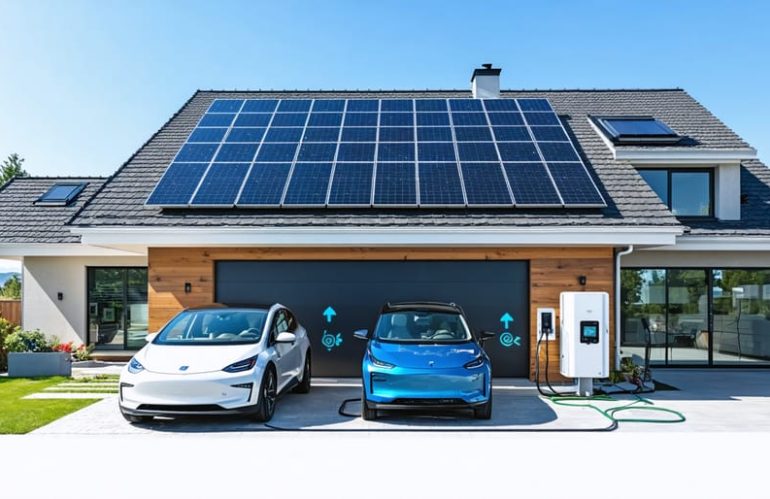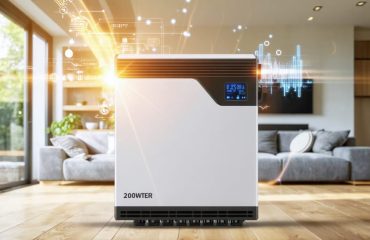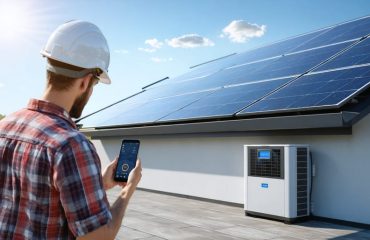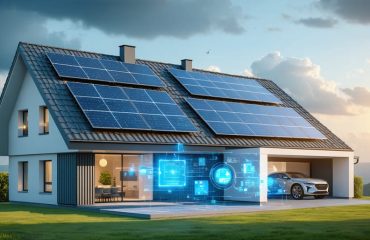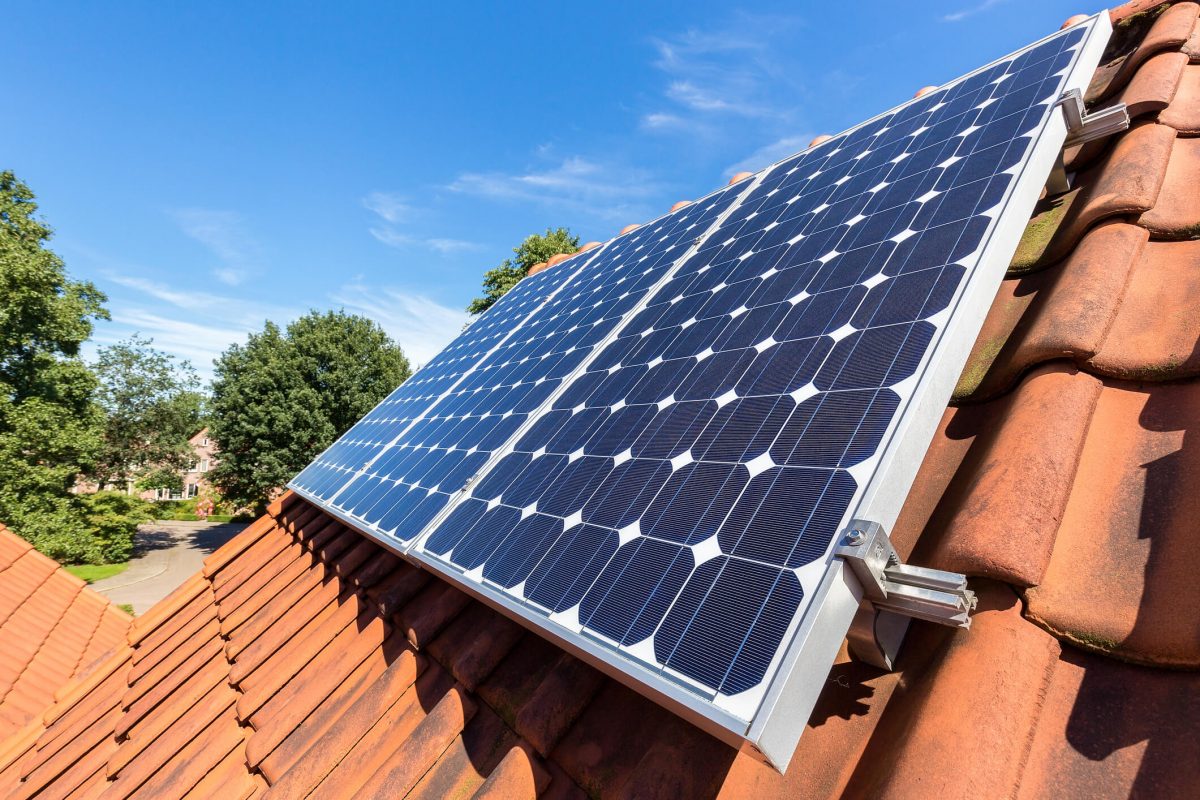Transform your home into a sustainable energy hub by combining solar power with EV charging capabilities through advanced solar inverter technology. Modern solar inverter EV chargers represent a game-changing solution that allows homeowners to power their electric vehicles directly from their solar panels, dramatically reducing both carbon footprint and energy costs. This innovative integration not only maximizes your solar investment but also provides intelligent power management, automatically switching between solar and grid power to ensure optimal charging efficiency.
By harnessing the sun’s energy to charge your electric vehicle, you’re not just embracing clean transportation – you’re creating a complete eco-friendly energy ecosystem right at home. These systems can deliver up to 9.6kW of charging power, matching or exceeding traditional Level 2 EV chargers while offering smart features like scheduled charging during peak solar production hours. For environmentally conscious homeowners looking to maximize their energy independence, solar inverter EV chargers represent the perfect fusion of renewable energy and sustainable transportation.

How Solar Inverter EV Chargers Transform Home Energy
Smart Power Management
Modern solar inverter EV chargers employ sophisticated power management systems that intelligently balance your home’s energy needs with vehicle charging requirements. Through advanced smart home integration, these systems continuously monitor your solar production, household consumption, and EV charging demands in real-time.
When your solar panels are generating excess power during peak sunlight hours, the system automatically directs this surplus energy to charge your electric vehicle. During periods of lower solar production or increased household demand, the system can adjust charging speeds or temporarily pause EV charging to ensure your home’s essential needs are met first.
Many systems also feature scheduling capabilities, allowing you to set preferred charging times that align with off-peak utility rates or maximum solar production. This intelligent power distribution helps maximize your solar investment while reducing reliance on grid power.
Some advanced models even incorporate weather forecasting to optimize charging schedules. For instance, if cloudy weather is predicted for tomorrow, the system might prioritize EV charging during today’s sunny periods. This predictive capability ensures you’re making the most of your solar energy while maintaining reliable power for both your home and vehicle.
The result is a seamless, efficient power management system that helps you achieve energy independence while reducing your carbon footprint and utility bills.

Faster Charging Capabilities
Modern solar inverter EV chargers offer significantly faster charging speeds compared to traditional home charging solutions. With Level 2 charging capabilities, these systems can deliver up to 40 miles of range per hour of charging, making overnight charging more than sufficient for daily commuting needs. The integration of smart power management allows the system to automatically adjust charging speeds based on available solar power and grid conditions.
These advanced chargers can handle power outputs ranging from 7.2kW to 19.2kW, depending on your home’s electrical capacity and your EV’s charging capabilities. During peak sunlight hours, the system maximizes solar power utilization, potentially charging your vehicle up to three times faster than standard 120V outlets.
The improved efficiency isn’t just about speed – these systems also minimize energy losses during power conversion. By directly converting DC power from solar panels to the type needed for EV charging, modern inverters achieve efficiency rates of up to 97%. This means more of your solar energy goes directly into charging your vehicle, reducing waste and maximizing your investment in clean energy.
Latest Innovations in Solar Inverter Charging
Bi-Directional Power Flow
Modern solar inverter EV chargers offer an innovative feature called bi-directional power flow, allowing your electric vehicle to act as a mobile power source for your home. This technology enables your car’s battery to feed electricity back into your home during power outages or peak electricity rates, effectively turning your EV into a backup power system.
When combined with battery storage solutions, this bi-directional capability creates a robust home energy ecosystem. During the day, your solar panels charge your EV and home batteries. At night or during outages, your EV can power essential home appliances, keeping your lights on and your refrigerator running.
This feature is particularly valuable during emergencies or grid failures, providing peace of mind and energy independence. Many homeowners find that bi-directional charging helps reduce their electricity bills by enabling them to use stored vehicle power during expensive peak hours. The system automatically manages power flow between your home, EV, and the grid, ensuring optimal energy usage and maximum savings with minimal user intervention.
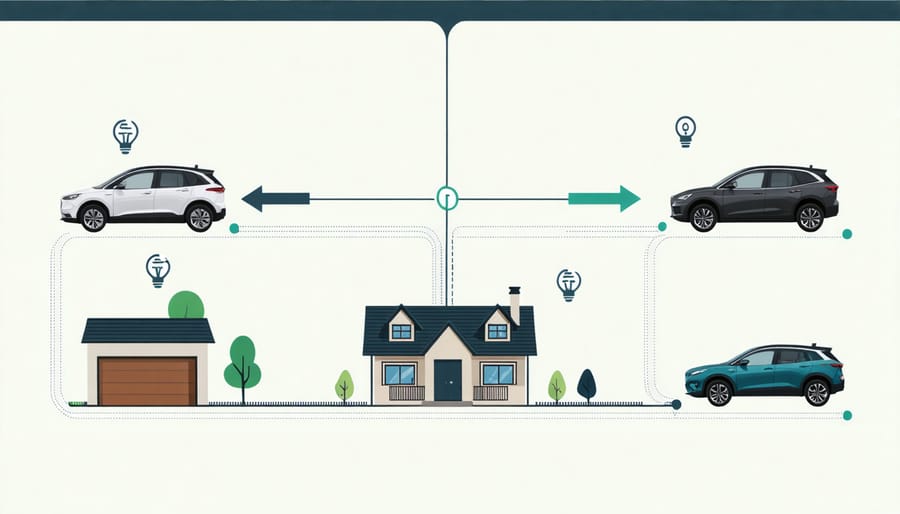
Smart Grid Integration
Modern solar inverter EV chargers excel at working harmoniously with the power grid, offering smart features that benefit both homeowners and the broader energy network. These systems can automatically adjust charging schedules based on grid demand, helping you take advantage of off-peak rates while reducing strain on the electrical infrastructure.
The smart grid integration allows your system to communicate with utility companies, enabling features like demand response and time-of-use optimization. During peak demand periods, your system can automatically switch to solar power, while during off-peak hours, it can utilize grid electricity when rates are lowest.
Many systems now include mobile apps that let you monitor and control your energy flow in real-time. You can track how much power comes from your solar panels versus the grid, adjust charging schedules, and even participate in utility reward programs that offer incentives for smart energy management.
These intelligent features not only help reduce your electricity bills but also contribute to a more stable and efficient power grid for everyone. Some systems can even provide backup power during outages, ensuring your home stays powered and your EV remains charged when you need it most.
Real Cost Benefits for Homeowners
Integrating a solar inverter EV charger into your home can deliver substantial financial benefits that go beyond traditional solar savings. When designing your solar system with EV charging capabilities, homeowners can expect to see savings from multiple angles.
First, you’ll eliminate or significantly reduce both your home electricity bills and EV charging costs. The average household can save $1,000-$1,500 annually on electricity alone, while EV charging savings typically add another $500-$800 per year. That’s a potential total savings of up to $2,300 annually.
The system also increases your energy independence, protecting you from rising utility rates and volatile gas prices. Many utility companies offer additional incentives for solar-powered EV charging, including time-of-use rate advantages and special rebates. Combined with federal tax credits and state incentives, the initial investment can be offset by 30-60%.
The integrated system typically pays for itself within 5-7 years, while continuing to generate savings for decades. Property value increases are another significant benefit, with solar-plus-EV-charging systems adding an average of 4-6% to home resale values. Smart monitoring features help optimize charging times to maximize savings, ensuring you get the most value from your solar production.
Solar inverter EV charging represents a significant step forward in sustainable transportation and home energy management. By combining solar power with EV charging capabilities, homeowners can significantly reduce their carbon footprint while enjoying substantial savings on both transportation and energy costs. The technology continues to evolve, with newer models offering improved efficiency, smart features, and seamless integration with home energy systems.
Looking ahead, the future of solar inverter EV charging appears promising. As manufacturing costs decrease and technology advances, these systems will become more accessible to the average homeowner. The growing adoption of electric vehicles, coupled with increasing environmental awareness, suggests that solar-powered EV charging will play a crucial role in our sustainable future. For homeowners considering this investment today, the combination of government incentives, reduced energy costs, and environmental benefits makes solar inverter EV charging an increasingly attractive option for powering both home and transportation needs.

